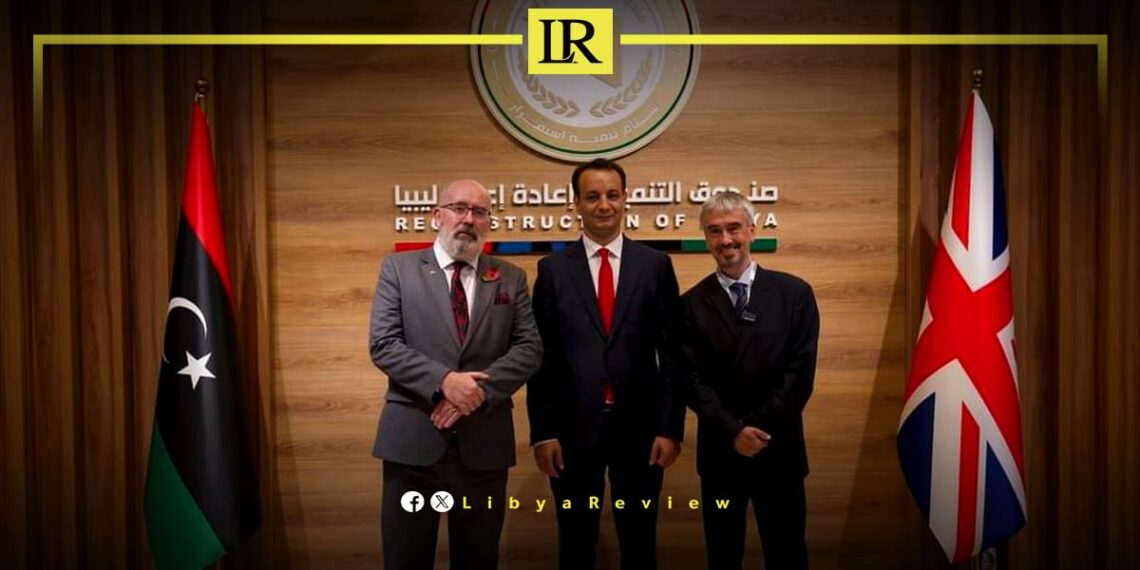British Ambassador to Libya, Martin Longden, highlighted Libya’s vast potential in a recent meeting with Engineer Belgassim Haftar, Director General of the Libyan Development and Reconstruction Fund.
Ambassador Longden noted the extensive developmental challenges Libya faces after decades of underinvestment but described the level of ambition as inspiring.
“Libya holds extremely exciting economic potential. British companies have the expertise and experience to play a significant role, and it’s fantastic to see an energetic group of British firms here in eastern Libya discussing business opportunities,” he said.
He added, “Total trade between the United Kingdom and Libya reached £2.2 billion last year, but there is plenty of room for further growth.”
Libya has been in chaos since a NATO-backed uprising toppled longtime leader Muammar Gaddafi in 2011. The county has for years been split between rival administrations.
Libya’s economy, heavily reliant on oil, has suffered due to the ongoing conflict. The instability has led to fluctuations in oil production and prices, impacting the global oil market and Libya’s economy.
The conflict has led to a significant humanitarian crisis in Libya, with thousands of people killed, and many more displaced. Migrants and refugees using Libya as a transit point to Europe have also faced dire conditions.
The planned elections for December 2021 were delayed due to disagreements over election laws and the eligibility of certain candidates. This delay has raised concerns about the feasibility of a peaceful political transition.
Despite the ceasefire, security remains a significant concern with sporadic fighting and the presence of mercenaries and foreign fighters. The unification of the military and the removal of foreign forces are crucial challenges.


